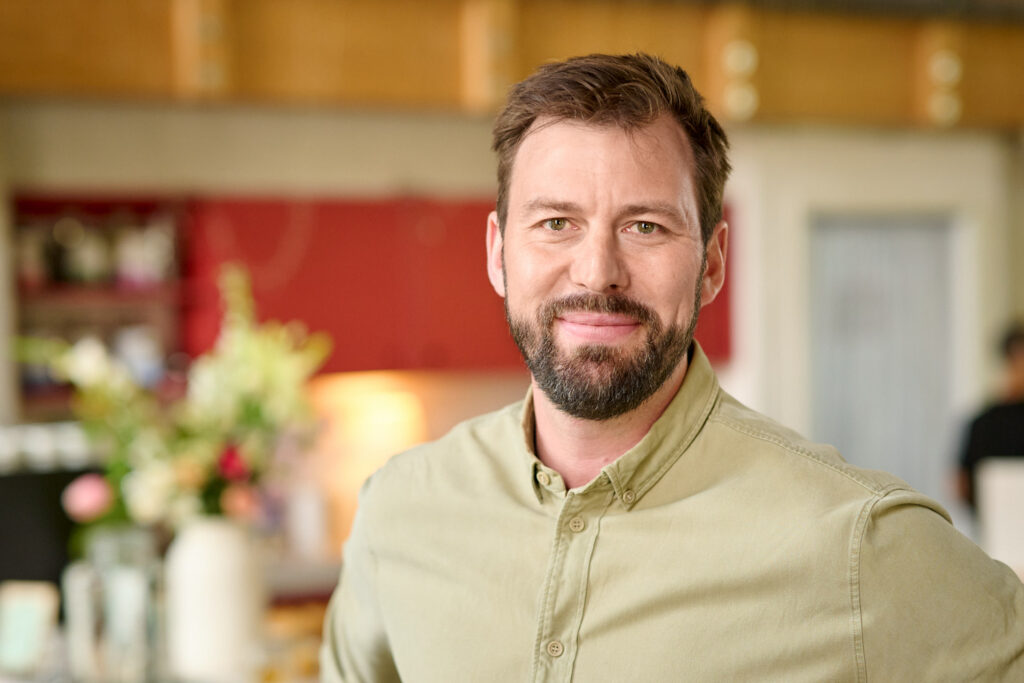10 Years of sustainable and social innovation: Impact Hub Berlin celebrates its anniversary
Our founder Leon Reiner shares his insights and learnings and discusses the future of Berlin’s impact scene.
This blog post was originally published as a guest article in the Berliner Zeitung.
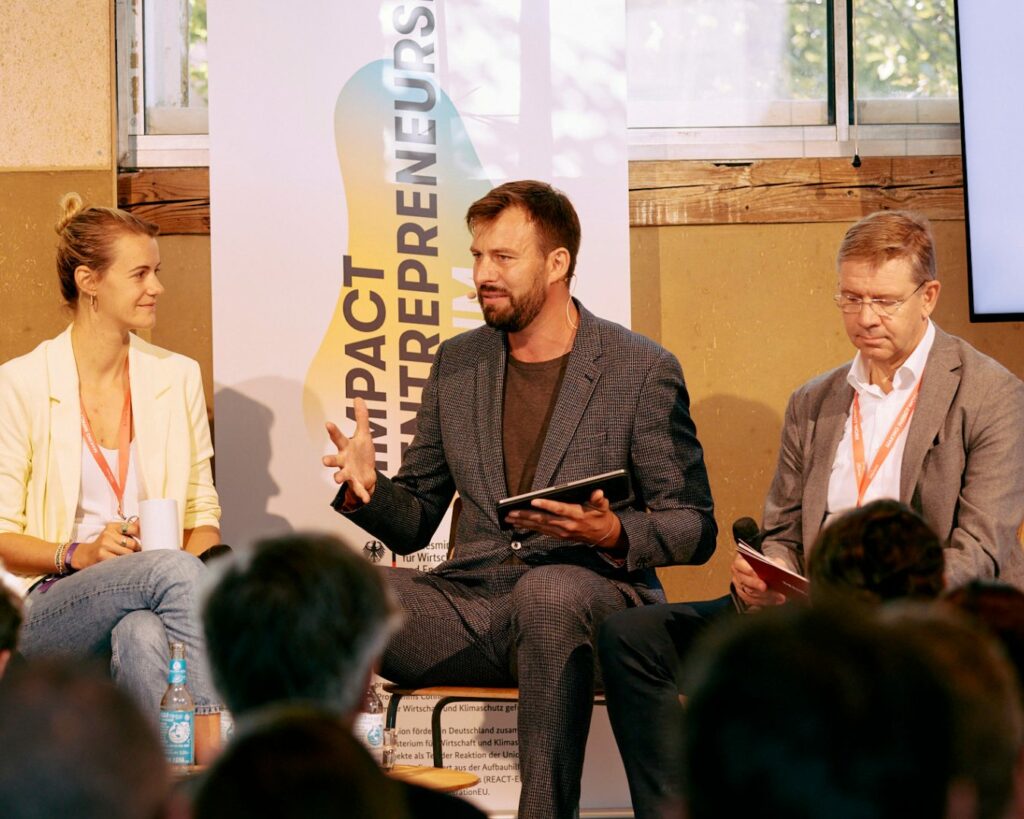
Ten years ago, social entrepreneurship in Berlin was a niche. What began with a handful of dedicated individuals has evolved into one of Europe's most dynamic ecosystems. Today, impact is a pillar of Berlin's startup agenda and even has a dedicated strategy on a federal level, the National Strategy for Social Innovations and Social Enterprises. As a co-founder of Impact Hub Berlin, I had the privilege not only to help build Berlin's impact scene from the ground up but also to witness how the innovations and companies that emerged here have contributed to making Berlin a more liveable city, and Germany – a more future-proof state.
On our 10th anniversary, I would like to share my key learnings from the past ten years of social and sustainable innovation. I am also peeking into the future of the impact scene, which will likely be shaped by trends such as artificial intelligence and increasing regulations. I also highlight the conditions that Berlin’s impact startups need to continue implementing innovation successfully. One thing is clear: Berlin has the potential to become the leading global centre for social and sustainable innovation!
The development of Berlin's impact scene over the past 10 years
In the past decade, Berlin has become an increasingly important hub for social and sustainable innovation. With a growing community, international players, and a clear agenda, the city is now a true hotspot for impact. The term “impact” serves as a collective term for innovations and startups aimed at solving societal challenges, both social and ecological. The changes over the past decade are particularly reflected in the evolution of our two services at Impact Hub Berlin: Programmes and Coworking.
Our experiences have shown us how crucial tailored programmes are in equipping impact entrepreneurs with all the necessary resources, network, and knowledge to achieve their goals. Similarly, we’ve recognised that a flexible and inspiring coworking space is the ideal place for creative exchange and collaboration. These two elements have become central pillars, enabling us to optimally support impact startups and partners from business and politics in turning their visions into reality.
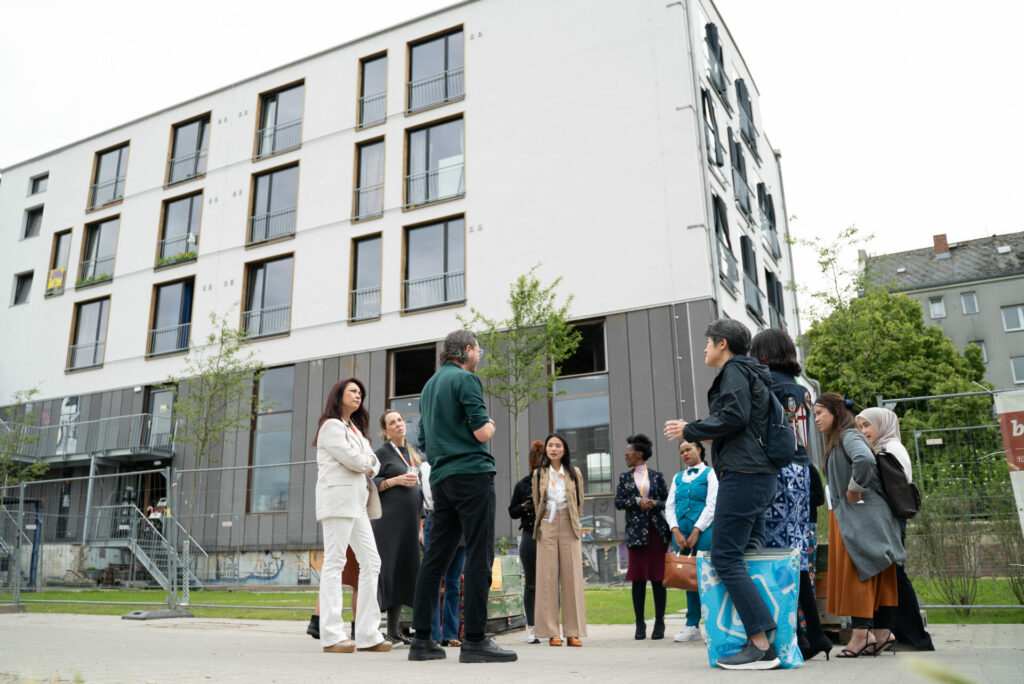
Coworking – from 100 m² to an award-winning 3,500 m² circular space
What began as a small coworking space of 100 m² has, over the past ten years, developed into our 3,500 m² award-winning circular space in the heart of Berlin-Neukölln, recognised by the Financial Times as one of "Europe's Leading Startup Hubs 2024." A coworking space built according to circularity principles. This transformation not only illustrates our growth but also that of Berlin as a hotspot for sustainable innovations. Impact Hub Berlin’s circular space is now the creative breeding ground where impact entrepreneurs bring their ideas to life – a place where collaboration, inspiration, and circular design converge.
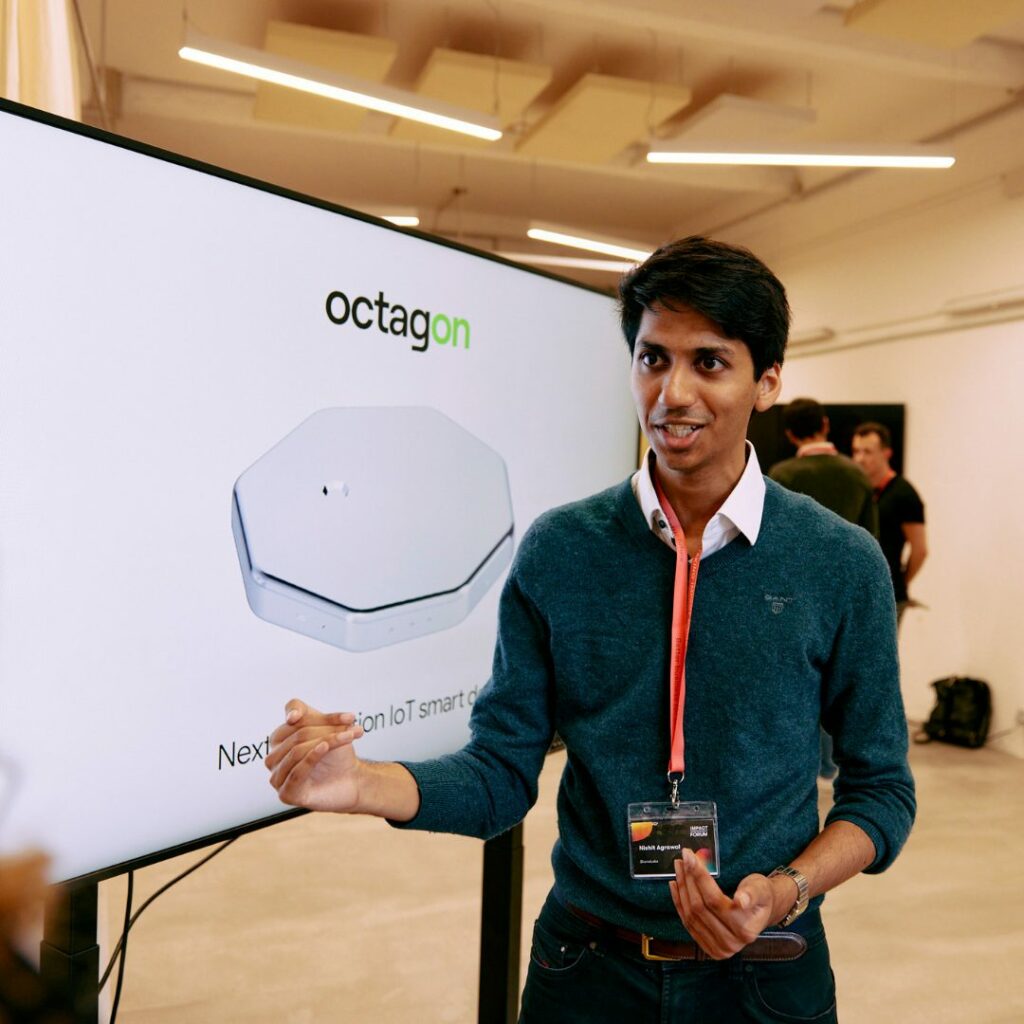
Programmes – from small projects to global partnerships
Our programmes have evolved just as significantly. While we initially collaborated with small, local partners, in recent years we've established major international partnerships. For instance, we've developed circular washing machine concepts with Miele, supported Bethmann Bank as a pioneer in sustainable financial strategies, and created the Diversity, Equity, and Inclusion programme Empower Now with TikTok. These successes demonstrate how the combination of local engagement and global networking can achieve impactful solutions.
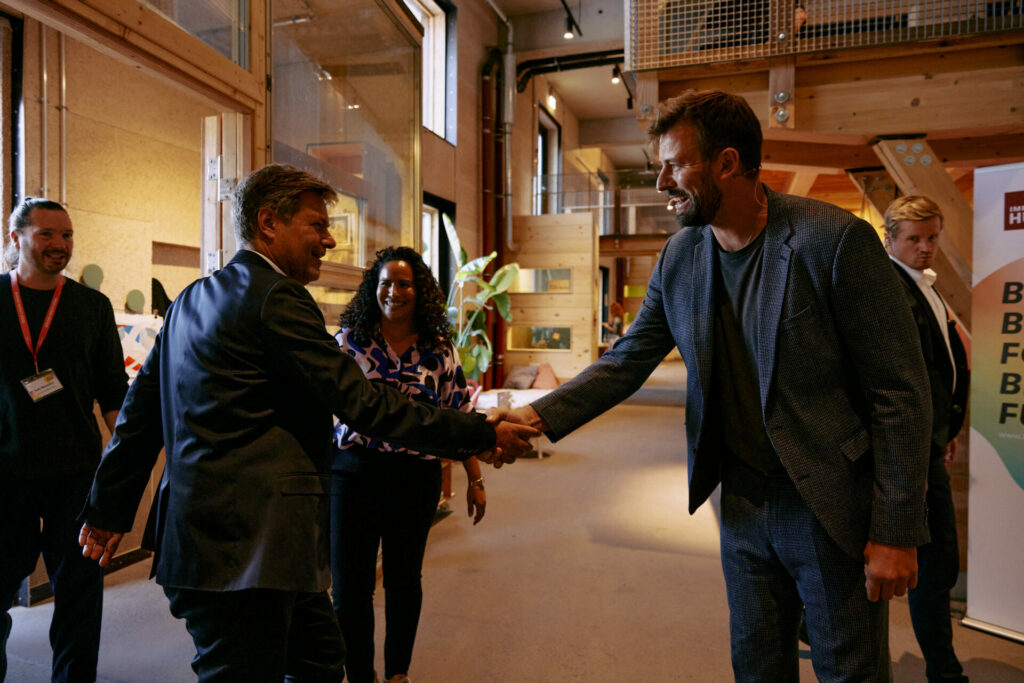
Funding – from crowdfunding to millions in revenue
Our financial journey reflects the growing importance of impact entrepreneurship. Our first crowdfunding campaign raised €50,000. Today, we generate annual revenues in the millions and collaborate with the German federal government, for example by creating programmes and projects funded as part of the Nachhaltig Wirken programme by the Federal Ministry for Economic Affairs and Climate Action and the European Union through the European Social Fund Plus (ESF Plus). This development clearly demonstrates not only our success but also the fact that the impact scene nowadays has much better financial opportunities than even before – despite the continuous challenges.
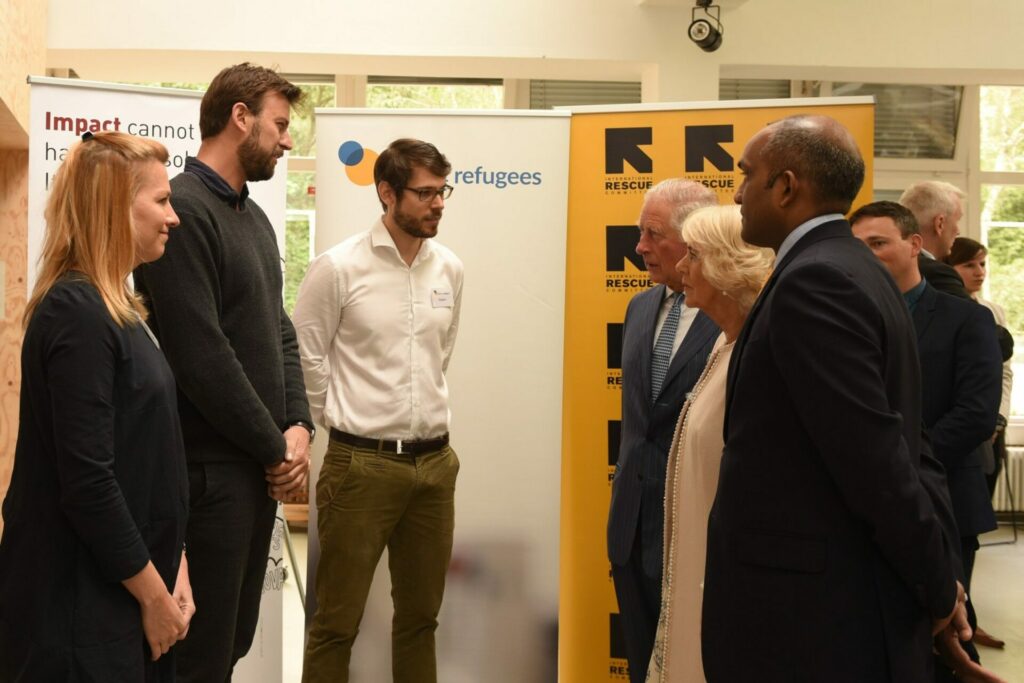
Fun Facts – from King Charles to Angela Merkel
Naturally, we’ve collected many fun facts over the past 10 years – a visit from King Charles, an inspiring Brownbag Lunch with Muhammad Yunus and our community, an appointment with President Steinmeier, and a photobomb with Angela Merkel. The "knighthood" came in October 2024, when Dr. Robert Habeck, Vice Chancellor and Federal Minister for Economic Affairs and Climate Action, took over the patronage of our Impact Entrepreneurship Forum and emphasized: "The event demonstrates the important role that impact-driven entrepreneurship plays for future-proofing our country. The forum brings together companies, startups, NGOs, but most importantly people – and thus becomes an important breeding ground for innovation." These moments are more than just anecdotes – they reflect the recognition and growth of the Berlin impact scene and highlight how far we've come in the last ten years.
The future of the impact scene
In light of the challenging economic situation and growing societal issues such as the climate crisis and political extremism, we need solutions that can make a meaningful contribution while also being economically viable. These are the solutions emerging in the impact scene, and Berlin has the potential to further establish itself as a home for the organisations that contribute to solving the major problems of our society. It’s not just startups that are relevant, but also business, science, and politics. Once we make sure that we need to work together to overcome these challenges, we could establish sustainability as a real competitive advantage of Berlin.
Latest trends and technologies for social entrepreneurship
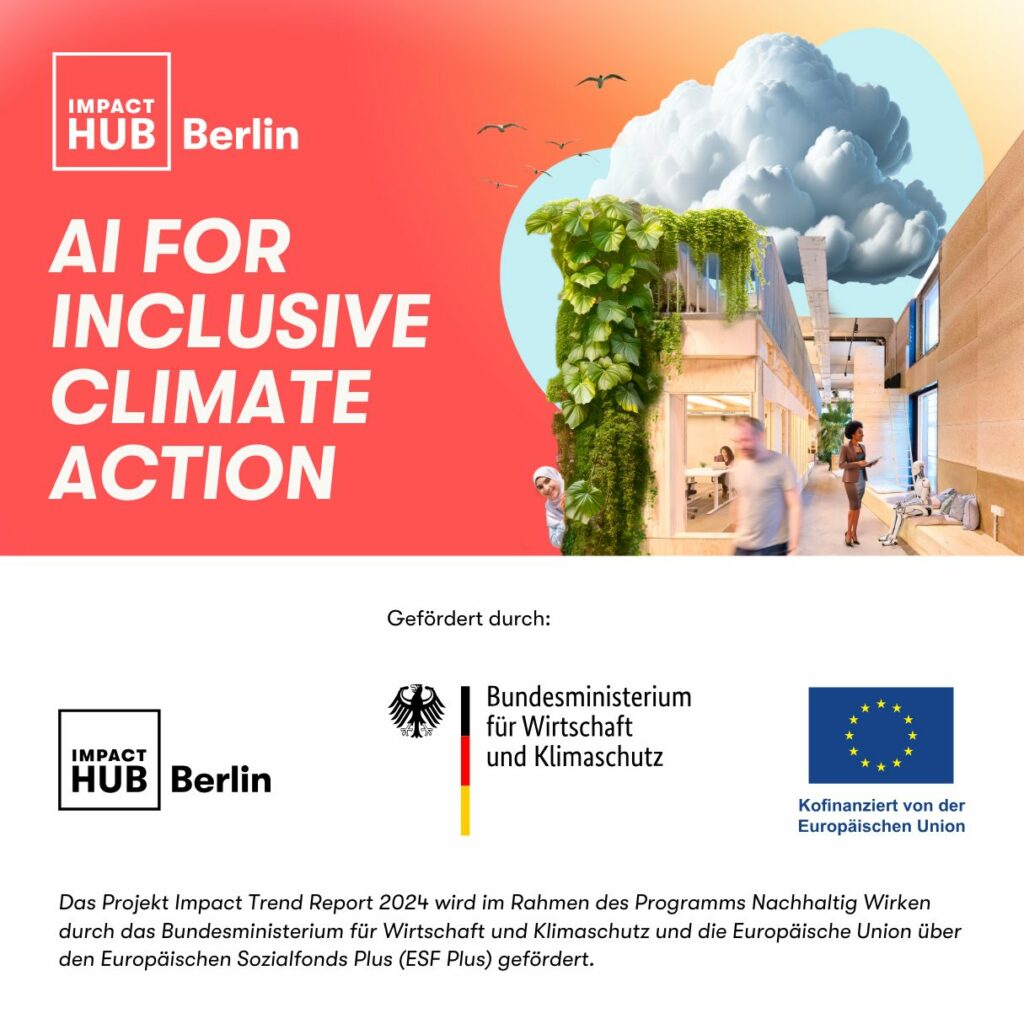
The next era of impact entrepreneurship will be shaped by two key themes: disruptive technologies and regulations. Disruptive technologies, such as artificial intelligence — not only in software but especially in hardware, for example in decarbonisation — will enable a significantly faster pace of innovation. This can foster efficiency, transparency, and trust when used responsibly and fairly. However, there are also risks that must be addressed. At Impact Hub Berlin, we are embracing these technologies to drive innovation, such as in the Impact Hub Berlin Labs, where AI and other technologies help make solutions scalable and efficient. We are also intensively engaging with artificial intelligence and its risks, and we recently published our 2024 Trend Report with eight AI trends for a sustainable and inclusive future.
At the same time, current developments in regulation, such as CSRD-Reporting and the Supply Chain Act, are becoming increasingly relevant for the impact scene. A look at the EU also shows that more changes can be expected in the future. However, at present, these changes are having an unexpected effect: The challenges of implementing reporting standards for larger companies are leading to an extreme focus on sustainability reporting, which in turn is resulting in a massive reduction in budgets available for innovation in the sustainability field. In the medium to long term, these funds will become available again, and the overall effect in terms of sustainability is expected to be very positive.
Together, these two trends have the potential to turn impact into a true competitive advantage for Berlin. To make this happen, we need close collaboration between all stakeholders in Berlin, especially between businesses and impact startups, in order to integrate ready-to-use innovations. To achieve this, companies must already begin to build the right structures.
To enable this special type of collaboration between different players, we have been building our impact ecosystem for the past 10 years. The focus on resource-efficient business models and the connection between sustainability and inclusion is more important today than ever.
In Berlin and across Germany, we collaborate with businesses, universities, and various ministries. Internationally, we are part of the largest impact network worldwide with over 120 locations and more than 500,000 changemakers. Thus we combine local impact with global reach. Impact Hub Berlin serves as a gateway for innovations and solutions for good, from the whole world to Berlin, and from Berlin to the whole world.
Berlin as a center for social and sustainable Innovation

Berlin is the dynamic hub for social and sustainable innovation, where impact-driven startups and companies can thrive. However, in order for these organisations to successfully implement their goals, specific framework conditions are required, which we need to continue working on.
These include access to capital through our targeted support programmes, or the establishment of a Social Impact Fund, as called for by SEND e.V. Improving legal frameworks, such as the creation of a legal entity for purpose-driven companies, as well as education and knowledge transfer, also play a crucial role in strengthening entrepreneurial capabilities in the social and sustainability sector. The planned joint founder centre of Berlin’s universities, UNITE Berlin, could play an important role here.
And especially crucial: small and medium-sized enterprises (SMEs) and startups joining forces to work on sustainability challenges, as we offer in Berlin through platforms like nawi.berlin.
10 years of social and sustainable innovation show: impact entrepreneurship is no longer just a niche, but a forward-thinking model which unites entrepreneurial action and social responsibility, thus driving sustainable change. Berlin has the potential to become a European or even global center for impact entrepreneurship. But to achieve this, we all need to work together: businesses, science, politics, philanthropy, and founders!
